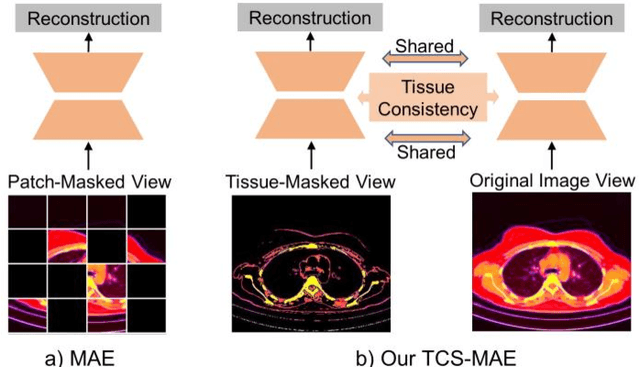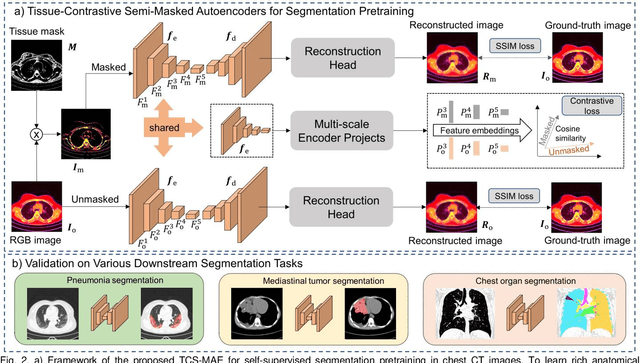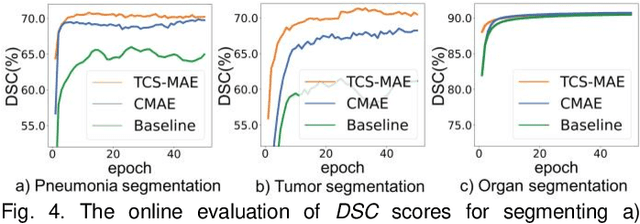Kui Su
Tissue-Contrastive Semi-Masked Autoencoders for Segmentation Pretraining on Chest CT
Jul 12, 2024



Abstract:Existing Masked Image Modeling (MIM) depends on a spatial patch-based masking-reconstruction strategy to perceive objects'features from unlabeled images, which may face two limitations when applied to chest CT: 1) inefficient feature learning due to complex anatomical details presented in CT images, and 2) suboptimal knowledge transfer owing to input disparity between upstream and downstream models. To address these issues, we propose a new MIM method named Tissue-Contrastive Semi-Masked Autoencoder (TCS-MAE) for modeling chest CT images. Our method has two novel designs: 1) a tissue-based masking-reconstruction strategy to capture more fine-grained anatomical features, and 2) a dual-AE architecture with contrastive learning between the masked and original image views to bridge the gap of the upstream and downstream models. To validate our method, we systematically investigate representative contrastive, generative, and hybrid self-supervised learning methods on top of tasks involving segmenting pneumonia, mediastinal tumors, and various organs. The results demonstrate that, compared to existing methods, our TCS-MAE more effectively learns tissue-aware representations, thereby significantly enhancing segmentation performance across all tasks.
Supervised Contrastive Learning for Fine-grained Chromosome Recognition
Dec 12, 2023Abstract:Chromosome recognition is an essential task in karyotyping, which plays a vital role in birth defect diagnosis and biomedical research. However, existing classification methods face significant challenges due to the inter-class similarity and intra-class variation of chromosomes. To address this issue, we propose a supervised contrastive learning strategy that is tailored to train model-agnostic deep networks for reliable chromosome classification. This method enables extracting fine-grained chromosomal embeddings in latent space. These embeddings effectively expand inter-class boundaries and reduce intra-class variations, enhancing their distinctiveness in predicting chromosome types. On top of two large-scale chromosome datasets, we comprehensively validate the power of our contrastive learning strategy in boosting cutting-edge deep networks such as Transformers and ResNets. Extensive results demonstrate that it can significantly improve models' generalization performance, with an accuracy improvement up to +4.5%. Codes and pretrained models will be released upon acceptance of this work.
 Add to Chrome
Add to Chrome Add to Firefox
Add to Firefox Add to Edge
Add to Edge